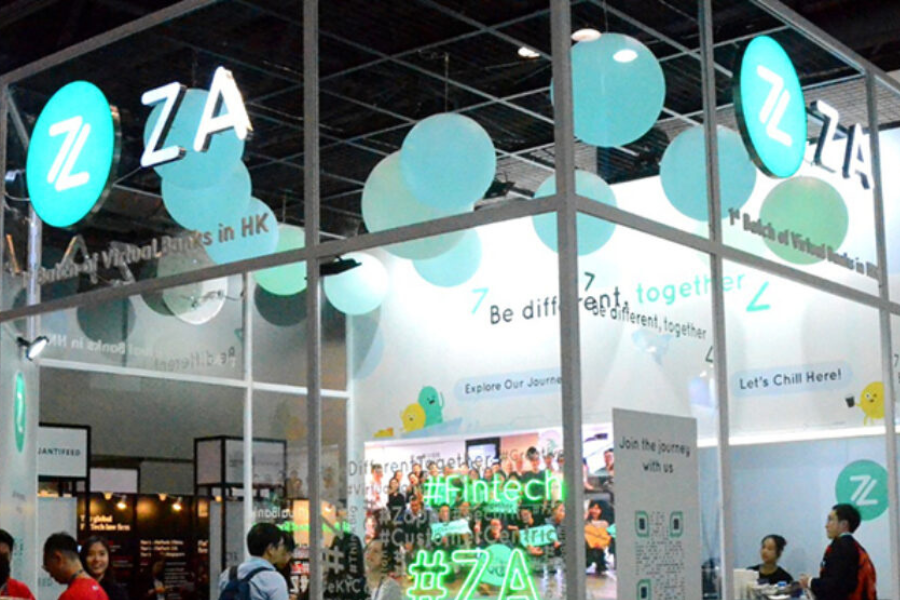All in the Family: Cash-strapped ZhongAn Taps Chairman’s Ties to Fund a Money-losing Unit

Sinolink, majority-owned by ZhongAn’s chairman Ou Yaping, will provide about $103 million in fresh capital for a ZhongAn unit that develops businesses overseas
Key Takeaways:
- Sinolink will buy about 156 million new shares in ZhongAn’s overseas business development unit, ZhongAn International, for about $103 million
- The deal comes in a difficult year for ZhongAn, whose own cash holdings are dwindling
By Warren Yang
Created in 2013 by Alibaba-affiliated (BABA.US; 9988.HK) Ant Group, Tencent (0700.HK) and Ping An Insurance (2318.HK; 601318.SS), ZhongAn Online P&C Insurance Co. Ltd. (6060.HK) has been working hard ever since to downplay its ties to its high-profile founders. Now, it’s turning to another relationship to raise funds for its money-losing unit that’s developing the company’s businesses outside China.
Sometimes your options are limited, so finding cash any way you can may be laudable. But ZhongAn’s own lack of spare capital – which appears to be why it’s not participating in this latest deal – probably doesn’t inspire investor confidence.
Investment firm Sinolink Worldwide Holdings Ltd. (1168.HK) will buy about 156 million new shares in the online insurer’s ZhongAn International (ZATI) unit for about $103 million, according to a stock exchange filing by ZhongAn last Friday. After the transaction, ZhongAn’s stake in the unit will decline to 44.7% from the current 47.32%. Sinolink’s ownership will increase to 44.75% from 41.5%, making it the largest shareholder. ZhongAn will continue to have the right to nominate three of ZATI’s four board members, keeping it firmly in control of the unit.
ZhongAn said proceeds from the sale will be used as working capital for ZATI, which ZhongAn and Sinolink established at the end of 2017 to expand into virtual banking and other fintech businesses overseas. ZhongAn initially held a majority 51% of the venture, with Sinolink holding the rest. They have since brought in two more investors, including a venture capital fund of AIA Group (1299.HK).
Sinolink probably doesn’t mind injecting more capital into ZATI without getting any additional control because Sinolink is itself majority owned by ZhongAn Chairman Ou Yaping, who has a stake of about 5.5% in ZhongAn through an entity that is ultimately controlled by Sinolink. Ou’s brother is also an executive director at Sinolink, while his son, who was 30 years old at the end of last year, is a non-executive director at both at Sinolink and ZhongAn. Talk about all in the family. Though such cross investments within different assets owned by a single family isn’t uncommon in China.
ZhongAn said Ou and his son abstained from voting in Sinolink’s decision to buy more ZATI shares. But given the close ties between the two entities, other Sinolink board members likely felt compelled to give the deal a thumbs-up.
Sinolink specializes in real estate investment, but is branching out to the fintech space through its relationship with ZhongAn. ZATI’s first major achievement was ZA Bank, one of the first virtual banks in Hong Kong, which started operating in March 2020. The business has been growing fast, amassing more than half a million customers by the end of last year in a market with a population of about 7.5 million. ZATI has also launched a digital insurance venture named ZA Life with a unit of Taiwan’s Fubon Financial (2881.TW); as well as ZA Tech Global, a provider of technology services for insurance and internet companies overseas, in collaboration with SoftBank’s (9984.T) Vision Fund.
Dwindling Cash
Despite these milestones, ZATI is far from profitable, with a net loss that widened more than 50% to about HK$760 million ($97 million) last year from 2020. In its latest annual report, Sinolink justified its investment in the business by saying that a fintech company typically requires heavy spending for developing hardware and technology, and it takes time before it can turn a profit.
The new cash injection for ZATI follows a previous one last October, when ZhongAn and Sinolink together provided $103 million in exchange for new shares in the unit. Last year’s transaction also included an option for ZhongAn to invest more in ZATI by June, though that never materialized.
ZhongAn’s lack of further financial commitment to ZATI may be partly because its own cash holdings are dwindling. Last year, its cash and cash equivalents more than halved to about 3.8 billion yuan ($548 million) as it generated a net negative cashflow from operations.
But Sinolink isn’t exactly awash with idle money either. While its cash and cash equivalents increased a bit last year, they totaled just a little over $191 million in U.S. dollar terms at the end of December. ZhongAn said Sinolink will fund its latest investment in ZATI with internal resources. If it taps into its existing cash holdings to finance the transaction, Sinolink’s liquid assets will decrease substantially to barely cover its short-term liabilities.
Investors apparently didn’t like the ZATI deal, either for ZhongAn or Sinolink. ZhongAn shares fell 2.6% on Monday, following the after-market announcement of the transaction the previous trading day, while Sinolink stock declined about 1%. Both stocks regained some of their losses Tuesday.
Perhaps the fact that ZhongAn seemingly lacks cash for a potentially promising venture drew investor attention to the financial constraints the insurer is facing. ZhongAn has come a long way from its roots as a gimmicky insurer that covers costs for returning goods sold on Taobao, Alibaba’s online C2C marketplace. It now offers a wide variety of insurance policies and made its first-ever annual profit from underwriting those products last year.
The company is also reducing its reliance on its founders to generate business, seeking to use its own distribution channels more and shift from depending on popular Tencent and Alibaba platforms. Both Tencent and Ant cut their stakes in ZhongAn this year, as Chinese authorities become increasingly uneasy about big tech companies becoming too powerful.
Although ZhongAn made a profit from insurance underwriting last year, the amount was tiny, and the insurer continues to rely heavily on investment income. ZhongAn has taken a hit this year as stock and bond markets crashed, pushing the company into the red in the first half of this year.
Yet it’s not all gloom and doom for ZhongAn. The company will probably weather the current financial turbulence and start making money from its investments again when markets improve. And as China’s pioneer in online insurance, it’s in a prime position to gain from the market’s growth. Reflecting the company’s potential, its stock still trades at a trailing price-to-earnings (P/E) ratio of about 25, far higher than the ratios of other profitable fintech companies, such as FinVolution (US.FINV), which is fetching less than 4.
To subscribe to Bamboo Works weekly free newsletter, click here






